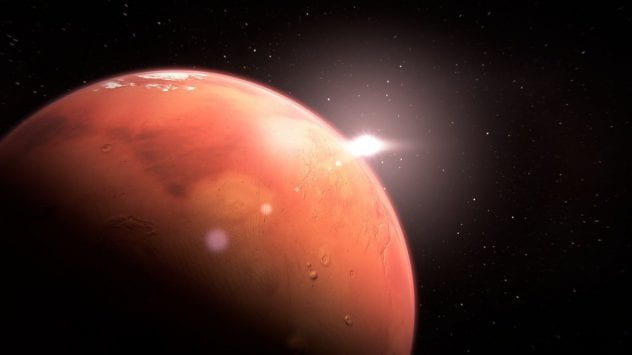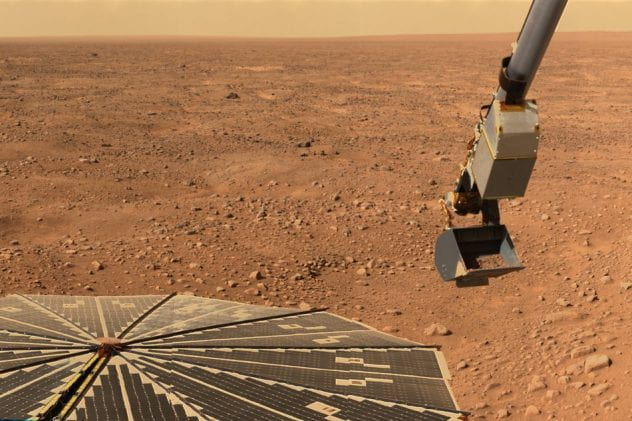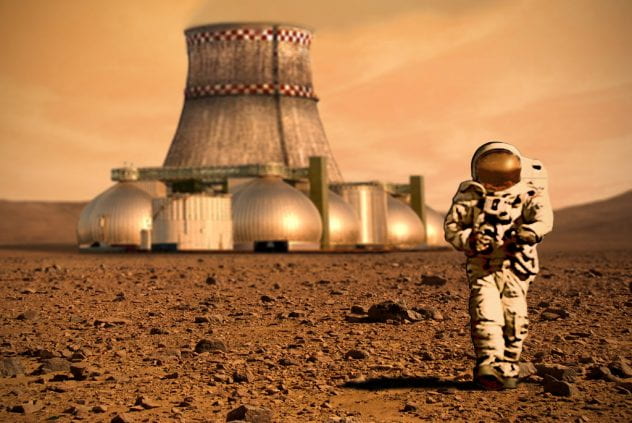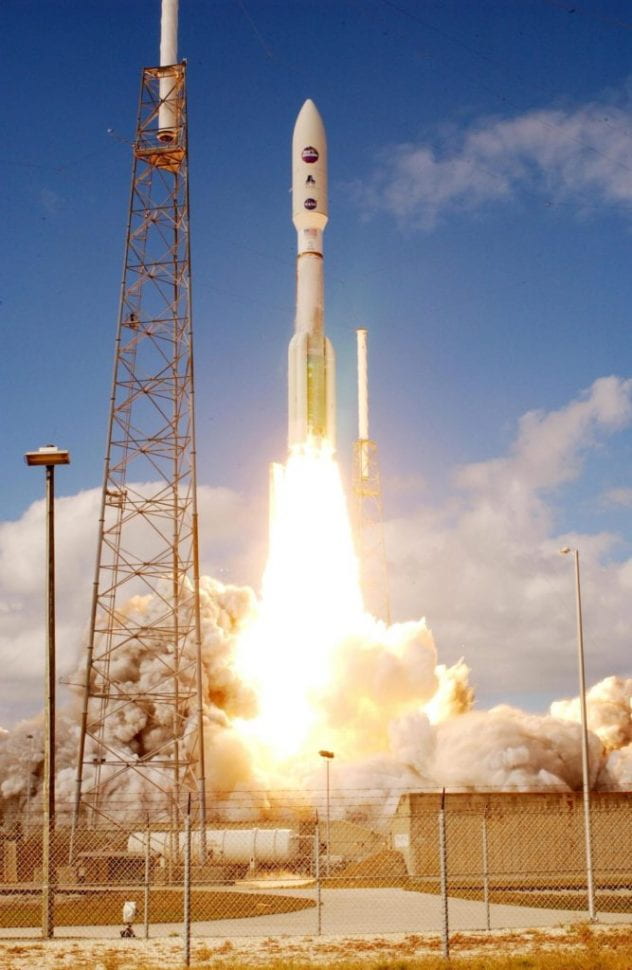
Image from: Marcela Karner
Picture this, in the not-so-distant future, the spacecraft Ares III has just landed on the red planet of Mars allowing the crew to take the first steps on the planet’s surface. The astronauts are able to create a livable habitat for themselves as they discover the great unknown of the final frontier. While this is simply the starting plotline to the movie “The Martian”, it can very well be an event in our future. Space exploration topics have been wildly discussed around the astronautic community that offers various questions as to if it is even possible. Space colonization in particular is one that presents intrigue and controversy.
In this article, I wish to explain and explore the possibility of colonizing the planet of Mars. This is such a volatile topic that has so many considerations and possibilities that it can be hard to truly understand its possibility. Despite this, I feel that this subject needs to be more fleshed out and explained to find the validity and possibility behind this enormous feat for mankind.
To start I wish to go over the current stigma and status on the colonization of Mars. As mentioned, this is a hot topic among professionals and the public eye. The main arguments from these two groups are:
- Survival of human species
- Exploring the potential of life on Mars to sustain humans
- Using space technology to positively contribute to our quality of life
- Developing as a species
- Gaining political and economic leadership
The main arguments (survival of the human species, development as a species, and political and economic leadership) are the three that I wish to expand upon as they are the primary points that astronomers feel are the most necessary towards Mars colonization.

Image from: Clifton Chu
Survival of the Human Species:
Looking at the survival of the human species, this can be taken into numerous different directions. Do we have the technology to survive? Could we survive in a different environment compared to Earth? How will we ever get there? These are all applicable questions that, ironically, are not even comparable to the main question to if it ethically acceptable to colonize another planet? There are two main ethical considerations that come into play with populating Mars:
- Respect to humans
- Respect to Mars itself
The ethical consideration in respect to humans questions if it is appropriate to place a human on the surface of Mars. There is a complete risk of placing individuals in a position where civilization needs to be rebuilt. Thankfully, there have already been contingency plans that span every detail that a human would encounter on Mars ranging from physical barriers of agriculture, medical needs, power, and even psychological needs. Developments have already been mapped out on how to create a functioning agricultural system, medical options to fight common space ailments that astronauts have faced such as osteoporosis, solar panel inventions to allow for consistent power to structures, and programs created by the NASA Human Research Program to train individuals mentally before being sent into space.
The more pressing of the ethical considerations, respect to Mars holds a more tangible barrier to colonizing Mars. Putting a colony on Mars would taint the untouched surface. We would be putting our mark, our bodily being, our bacteria in an environment that has never encountered anything like us prior. This could be detrimental to the ecosystem already present on the planet. Microbial decontamination (an infection that is free of risk) of living on Earth is not a problem whatsoever. However, on Mars, we could infect any type of organism that is on the planet, creating the possibility of inadvertently killing the ecosystem. Sadly, this is a concern that still needs further testing as it is almost impossible to know until we have a live experiment. While this is a major deterrent to colonizing Mars, there are clear plans already in order that make it ethically acceptable to colonize the planet.

Image from: Wikimedia Commons
Development as a Species:
With the development as a species, there is an underlying question of to what is next for humanity regarding evolution? What is the next step to our advancement as a species? To many critics of Mars colonization, they would say mankind was meant to stay on Earth. They make the point that is no need to continue to other planets when we have a perfectly fine option here on Earth. While this is true to an extent, many space expansionists believe that colonizing Mars would thrust our species into a higher level of evolution. One of the most prominent of these expansionists is Elon Musk. He has been quoted saying that making life multi-planetary is “one of the important steps in evolution of life.” Our species has already made the jump from microbial to an organism. From living in water to land. Space is the clear succession for our development as a species.
Without necessary resources, it’s hard to develop anything substantial. It goes without saying that resource acquisition would be necessary for the development of a Mars colony. As mentioned, colonizing Mars would progress our species to the next steps of evolution; however, this won’t even be feasible if we don’t have the proper resources to fully reach that point. Thankfully, there have been plans to get the proper resources delivered allowing for humans to truly develop within a Mars colony. NASA JPL and Minor Planet Center have already evaluated a mining strategy using the surrounding asteroids around Mars that would be able to supplement the precious resources that we use here on Earth. While further exploration and developments would need to be made to adapt resource management that we use on Earth, this is a promising step showing that development can happen.
Now to address the true resource that needs to be prominent for our species to develop properly on Mars. Water. While it has not been observed on the surface of the planet, sources of water have been recorded to be located underneath its surface. It has already been discovered that underneath the surface of Mars, there are collections of sub-surface lakes plentiful with water. This shows more than just a finite amount, but there is the possibility for precipitation to formulate on the planet. Of course, these lakes would need to be excavated and artificially reproduced; however, it is there and it is accessible. This is a critical point that adds validity to how we can survive as a colony. It shows that humanity would be able to develop properly and be able to reach that higher level of evolution that we are destined to reach. Development as a species is absolutely necessary to take into account when determining the validity of colonizing Mars. With the plans already in motion and the further experiments that are in the works, it is only a matter of time before this becomes reality.

Image from: NASA
Political and Economic Leadership:
Finally, I want to touch on the political and economic leadership argument. If we do create a colony on Mars, there will be countless logistical details that absolutely need to be addressed for society to thrive. Just because we colonize Mars does not mean that there is no order. Currently, there is only one globally agreed document titled the Outer Space Treaty that does govern international cooperation within space. This treaty is the first space law that goes over the exploration of space and how said exploration should benefit the interests of all countries. Even more important, it makes a prominent assertion that the Moon and other celestial bodies shall be used exclusively for peaceful purposes. These are all great starting points for space exploration, but it does not quite go over the colonization of a planet. Colonizing Mars would require an expansion to this treaty marking prominent points of consistent peace, possibilities of economic growth, and respect to the planet.
There is an old saying about the United States that it is a “melting pot” of various individuals from a variety of backgrounds. If mankind were to colonize Mars, it would be the most diverse melting pot ever envisioned. Different countries would be sending individuals to the planet’s surface and create colonies in respect to said countries. This creates an issue as to the possibility of war or confrontations occurring between colonies. The Braun-Tsiolkovsky and Clarke-Sagan paradigms tackle this issue of security and war within the context of interstellar exploration. By this, these paradigms encounter the problem with security in keeping Mars’ colonies safe and the possibilities of wars breaking out on the planet’s surface. They bring up the realization that if we have already weaponized Earth, this is bound to happen to Mars unless we, as humans, work as a collective unit (or have on hegemonic power of all countries rather than split up powers). These paradigms would need to be further expanded upon when creating a tangible law system so peace and collectivity can flourish among all individuals. A Mars colony would be more than just an ulterior destination to live, it is a shelter that we can rely on if Earth ever becomes compromised. When starting a new civilization, these factors come into play and are crucial to truly achieving a haven for mankind.
One Giant Leap for Mankind:
Mars has been a constant question within the astrological community as to if it is practical to eventually live on this planet. As shown, many arguments are present questioning the validity of this notion. So many logistical barriers are in place that could prevent civilization from ever being placed on the surface of Mars. Despite this, there are clear plans that make the survival of the human species possible and ethically acceptable. Just as important, our species would be able to properly develop and evolve to a greater level through plentiful resource allocation. Finally, with adequate planning and understanding, society would be able to formulate and thrive beyond any expectations. These arguments surrounding creating a colony on Mars might be intimidating to face, but as I have laid out, they can be addressed properly leaving only implementation left to conquer.
The opportunity to experience and observe the unknown of space is right in front of us, and all we need to do is take that step towards unveiling the mysteries of our solar system. Colonizing Mars is a bold and dangerous feat. However, the opportunity to show what else our galaxy has to offer to makes up for this danger as it would project our society into a position of higher learning. Neil Armstrong famously said, “one step from a man, one giant leap for mankind”. We have a chance to go beyond this leap; this can turn into a complete ascension to the future projecting us further than ever imaged all from one step on the surface of Mars.